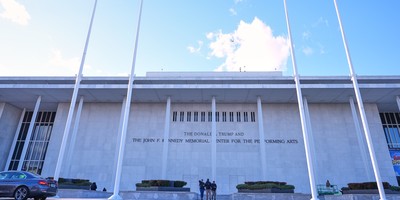On April 4, 1968, the Rev. Martin Luther King Jr. walked out on a motel balcony in Memphis, Tenn., and was felled by an assassin's bullet.
It is a poignant and hurtful thing to recall. But, now, 40 years later, circumstances provoke more than the usual reflection about this man, his life and our country.
Given what King lived and died for, and given his milestone civil-rights achievements in his short life, why are we still talking about race in the United States in 2008?
Today, we have not just black millionaires but black billionaires, black celebrities, black CEOs, accomplished black professionals in every field. We have black governors, mayors and national and state legislatures filled with black representatives.
Certainly in our large cities, interracial couples no longer get stares.
Will electing a black man president finally bridge the racial divide? The prospect hovers before us. Yet, rather than fading into the background, the focus on race is getting more intense.
Can it be that, along with money and sex, talk about race will be with us forever?
King asked the question in his "I Have a Dream" speech.
"There are those who are asking ... When will you be satisfied?" And he answered, quoting the prophet Amos, not until "justice rolls down like waters, and righteousness like a mighty stream."
I would assume that even the most rabid Barack Obama supporter wouldn't claim an Obama administration would produce a mighty stream of righteousness.
So will it ever end?
The civil-rights movement led by King was, of course, a Christian movement. Its songs were spirituals. Its color and tangibility came from biblical imagery. It recalled the Israelites enslaved in Egypt and Moses demanding Pharoah to "let my people go."
Recommended
And, in those fateful words that night before he was shot, King said he'd gone "up to the mountain. ... And I've seen the Promised Land."
The Israelites wandered for 40 years. Soon after they left Egypt, it was evident the generation of slaves was not ready to become a generation capable of the responsibilities of freedom.
Although there probably is no word more frequently used in American political discourse than "freedom," our popular sense of this word is quite different from the principle in that biblical story of liberation.
Receiving the law was the crucial stop between escaping Egyptian servitude and entering the Promised Land. Freedom amounted to exchanging external oppression for personal responsibility.
Like Moses, the great prophet and leader of the Israelites, King did not make it into the land.
Perhaps the message is that even the greatest leader has his place. He can lead in adversity, but he cannot live your life for you.
The Israelites' great sin, which condemned them to wander for 40 years, was to say, despite having all that they needed, "We're not ready. We can't do it. The challenge is too great."
King led the movement that produced the Civil Rights Act of 1964 and the Voting Rights Act of 1965, closing the door on legal discrimination in this country. But more than 40 years later, we still hear, "We're not ready. We can't do it."
Washington lobbyists and special interests are not to blame for single-parent homes, drugs, promiscuity, abortion and sexually transmitted diseases, high-school dropouts and the accompanying poverty. The conditions reflect personal decisions and can only be addressed through personal conviction and resolve.
The Israelites were warned about false prophets. In today's terminology, I'd call this anyone, be it politician or clergyman, who suggests that anyone but you can solve your own problems.
The greatest tribute any American, black or white, can pay to King is to embrace the traditional values and truths critical to live the free life that his work helped make possible.
By so doing, racial politics will finally end and righteousness will flow "like a mighty stream."
























Join the conversation as a VIP Member